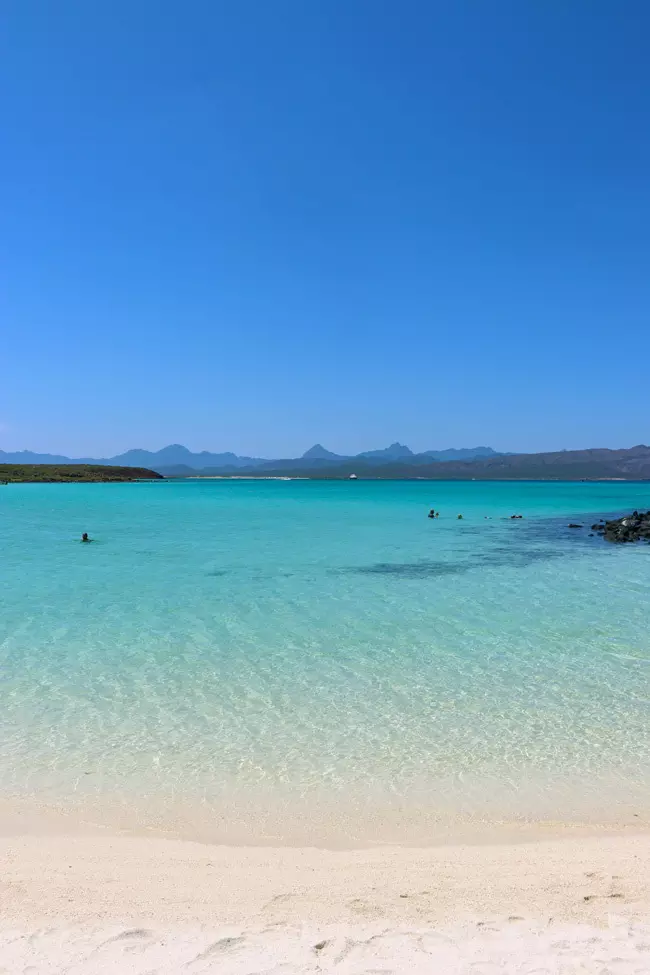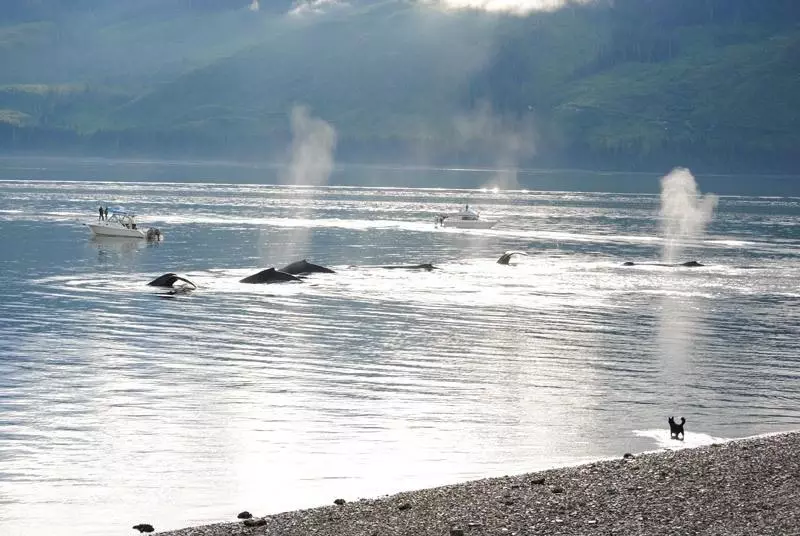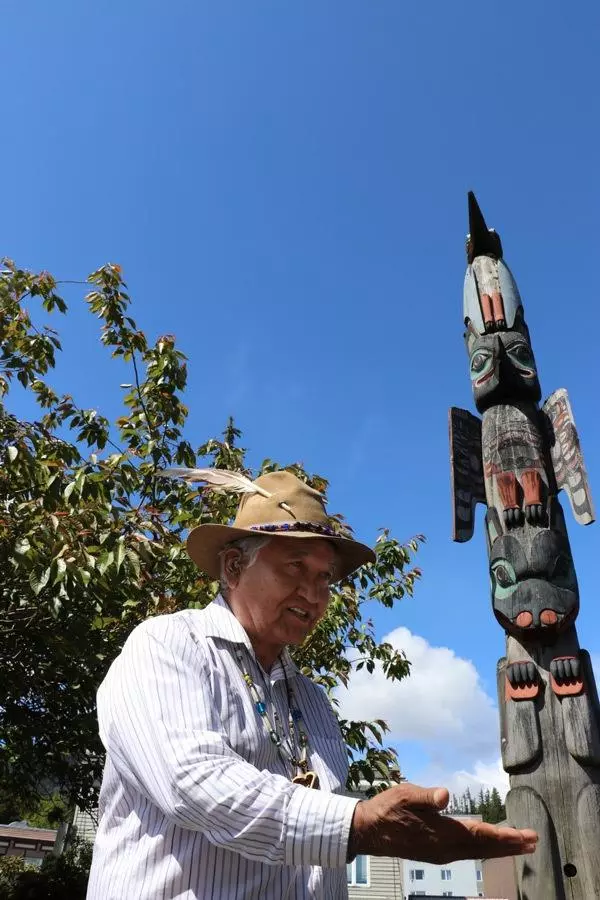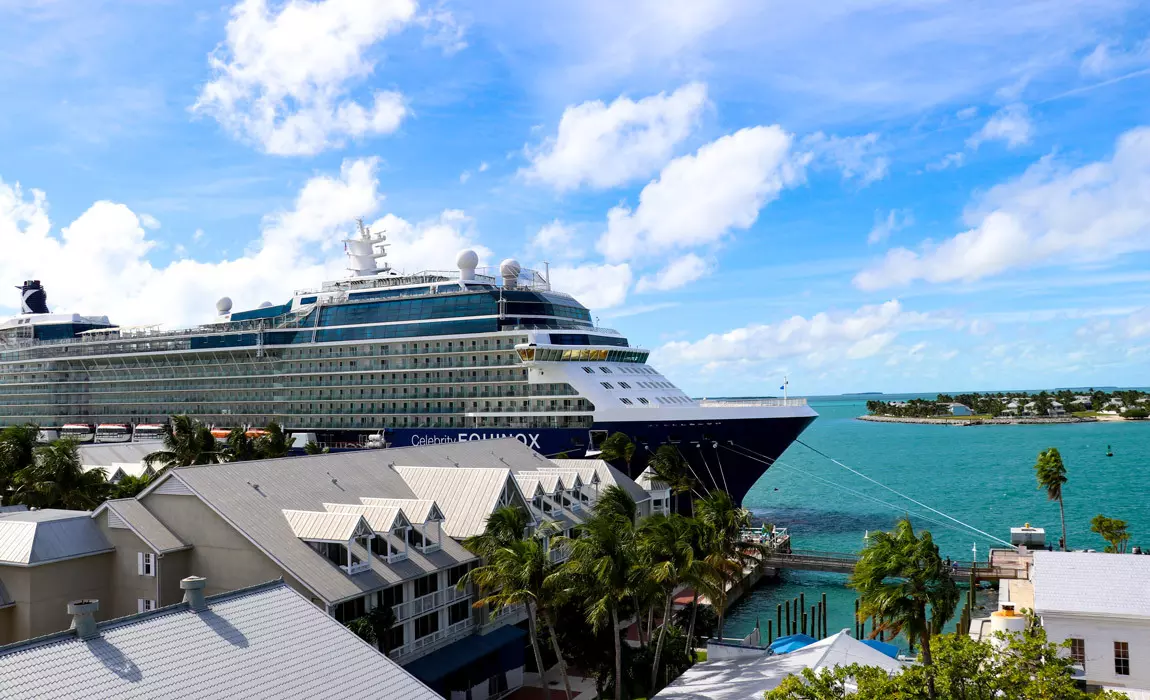Key West has been in the news a lot the past couple weeks because it effectively kicked the mainstream cruise industry out of town. This was a long time coming. However, due to the global pause in cruising this year, the ecological impact became even more acutely obvious. With less silt being stirred up by large ships passing through the channel cut through the reef that surrounds the island, the situation could no longer be excused or ignored. While this is a major news story and another blow to an industry that faces a long recovery period, the concerns faced by conchs aren't limited to just Key West. Scientists and locals in other communities from Alaska and Hawaii to Mexico are having similar conversations. While different groups of people will have different priorities, the question of how to manage the inevitable exponential future growth that this industry will experience once again in the coming years is something we must all consider.
Key West is an amazing destination to visit on a cruise since it is so close for cruises out of Tampa, Miami, and even New Orleans and Galveston. Not only is it close but it is an American port with a vibrant and unique culture that is also an extremely safe place for tourists to visit compared to most Caribbean ports. When I visited there a year ago the locals were already frustrated with the number of visitors but more so the impact they were observing to the coral reef and clarity of the water in general. This is something that I initially brushed off as people complaining the same way that folks in college towns do about the kids when school is in session. Then COVID hit and ships stopped, the water cleared up, and we all realized how big of an impact the large cruise ships had there. While this is an acute example with a Caribbean cruise port, destinations on the west coast aren't immune to these concerns.
Key West captured the attention of the world this year because it has a combination of factors - not the least of which is the luxury to be able to observe changes and fight back using protections backed by American academic and scientific prowess. Unfortunately, the same can't be said for other Caribbean destinations or Mexican ports such as La Paz on the Sea of Cortez for example. To date, this hasn't been a major issue for Alaska, Hawaii, British Columbia, or other west coast cruise ports such as San Diego or Los Angeles. Part of that is due to the fact that most west coast cruise ports have been established as major cities or at least major cruise ports and have significant amounts of commercial shipping traffic as well.
Things are starting to change though. What we see happening in Key West will happen in pristine areas such as Glacier Bay, ports along the Sea of Cortez, and villages in Alaska as cruise lines are forced to spread out as the mainstays like Skagway and Ketchikan get too crowded.
The solution that folks in Key West adopted is easy for a port-rich environment like the Caribbean since cruise lines can easily drop them as a destination and with a few exceptions, the economy there will still be vibrant - even without thousands of people being dropped off for tours every few days.

What About Ecologically Sensitive Areas On The West Coast?
Thankfully, west coast cruisers don't have to worry about cruise ships cutting through shallow waters in an ecologically sensitive area such as the Florida Keys National Marine Sanctuary. However, as Mexico cruises continue to become more popular and the economy recovers, the Sea of Cortez will become one of the hottest areas to visit for cruises. If you have ever been to towns like Loreto and La Paz you will be amazed by the crystal clear waters and huge amounts of sea life from calving whales to tuna and whale sharks.
Up north, in Alaska, we have a need for new ports and while destinations such as Icy Strait Point are leading this effort right now by offering new options, more will be needed. Here though, it isn't about water quality. Instead, there are simply too many people coming into the same ports and it is causing ports such as Ketchican, Skagway, and Juneau to become more touristy and less authentic. While these ports aren't at the same level as their Caribbean cousins with a Diamonds International and a Senor Frogs at every stop ... it's starting to get there.
Not only does this result in an over-commercialized port area, but the noise from helicopters touring the glaciers, the impact of people on ATV tours tearing through the forests, and frankly the danger to marine life that all ships present. In 2017, Grand Princess pulled into port in Ketchikan with a whale stuck on its bow. A similar incident happened in 2016 with Holland America Line's Zaandam as it pulled into Seward. While these are major incidents that continue to occur, the more subtle impact of 1.4 million cruise visitors to Alaska and the whale watching boats that carry 350,000 tourists each year have their own ecological impact too.
On busy days this means that there can be as many as 10 boats following a single whale or group of whales and as many as 65 whale-watching boats following whales in Glacier Bay National Park and Juneau. This is already being observed to disrupt whale social behavior and leading to fewer whales visiting the area and potentially other more serious impacts on the ecosystem that we aren't able to observe yet.

There Is No Single Solution To Reducing Our Cruise Footprint
It would be easy to provide an answer as to how to help protect the environment from the impact of cruising. I'm far from telling people to stop cruising and I'm not going to cast blame entirely on the industry itself. While there are brands such as Carnival Corporation who have disregarded ecological regulations for whatever reason, pointing fingers isn't my objective here.
Instead, what I hope is that collectively cruisers begin to consider the impact and assess their personal tolerance. Government regulations will come but generally speaking these regulations cause more disruption than if market forces correct themselves. These market forces include your choice as a cruise fan to book on lines that have positive environment track records, select itineraries that might have less impact, and then selecting tours that are sustainable, support the local economy directly, and help protect and preserve what drew you to the destination. if you don't, others won't be able to follow in your footsteps - months, years, or decades into the future.

Additionally, when traveling, make sure to ask questions from locals. Don't just sit in your bus looking out the window when for instance you can take a tour led by a Tlingit elder in Ketchikan (Joe Williams is an AMAZING guide!), visit a restaurant in La Paz where you can learn about tortilla making from a local by asking her questions, or using sites like Tours by Locals where you can learn more about a destination and put money directly into the hands of the folks who live there.
While I would also suggest and encourage those who can afford it to also use companies like Uncruise or other small ship cruise operators, that isn't practical for everyone. These cruises certainly have the flexibility and economic margins to do more to promote sustainability and socially conscious cruising but that isn't the end of the story. Instead, consider that every action you take from the time you consider where you want to go to the time you return with tales of your adventure is an opportunity to protect the experience that you had so that others can have a similar opportunity in the future.
Thanks for reading. We hope this was helpful!
Why stop now?
Participate In Our Polls | Ask or Answer A Cruise Question | Contact Heather to Book Your Next Cruise!

